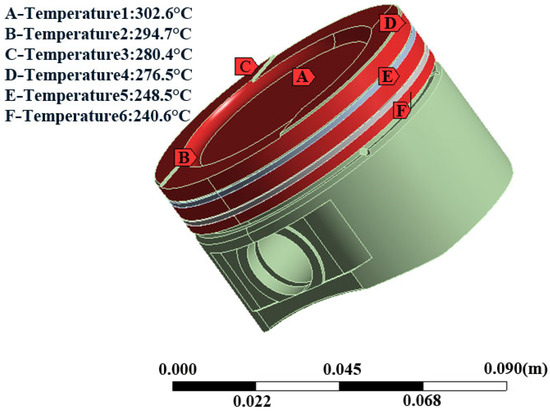Cooling directly affects reducing wear and tear on piston rings materials during continuous operation by:
• Lowering engine and piston temperature: A good cooling system maintains the operating temperature at an optimal level, reducing excessive metal expansion and reducing cracks or distortions that may occur in pistons due to excessive heat.
• Reducing the effect of heat on friction and wear: High engine temperatures increase piston friction with the cylinder walls, causing them to wear out more quickly. Effective cooling reduces this friction and prolongs piston life.
• Preventing piston damage caused by cooling failure: Cooling system problems—such as a malfunctioning cooling fan or a coolant leak—lead to persistent engine overheating, which accelerates piston wear and negatively impacts engine performance.
• Contributing to material stability: Stable operating temperatures thanks to cooling maintain the mechanical and chemical properties of pistons, preventing premature failure and improving their resistance to pressure and corrosion. Therefore, adopting advanced and effective cooling technology is essential for protecting piston rings from heat-related damage and maintaining their efficiency and durability during continuous diesel engine operation.
Piston maintenance and inspection are essential for maintaining high diesel engine performance, as the piston ring is the primary link that prevents combustion chamber pressure and oil leakage, thus ensuring efficient combustion and maintaining engine efficiency.
When the piston ring is damaged due to wear or overheating, gases and oil begin to leak, leading to reduced combustion pressure, poor engine acceleration, increased oil consumption, and the appearance of blue or gray smoke from the exhaust. These signs indicate poor engine performance and gradual deterioration.
Routine maintenance allows for early detection of piston damage or leaks through visual inspection, cylinder compression testing, or monitoring oil consumption. This prevents damage to other engine components and reduces significant repair costs. Maintenance also maintains the cleanliness of the fuel and air systems, which impact piston performance and overall engine efficiency. Therefore, regular inspection and maintenance of the piston rings ensures a tight seal inside the cylinder, maintains high engine performance, reduces fuel and oil consumption, and avoids costly sudden breakdowns.
All Categories

